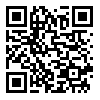Fri, Jan 30, 2026
| فارسی
1- Ph.D. Student of Psychology, Roudehen Branch, Islamic Azad University, Roudehen, Iran
2- Associate Professor, Department of Psychology, Roudehen Branch, Islamic Azad University, Roudehen, Iran ,hem_psy@yahoo.com
3- Associate Professor, Department of Psychology, Roudehen Branch, Islamic Azad University, Roudehen, Iran
2- Associate Professor, Department of Psychology, Roudehen Branch, Islamic Azad University, Roudehen, Iran ,
3- Associate Professor, Department of Psychology, Roudehen Branch, Islamic Azad University, Roudehen, Iran
Abstract: (1496 Views)
The aim of the present research was to fit a model of self-esteem based on attachment styles with the mediating role of body image satisfaction. This study falls within the category of correlational descriptive research and utilizes structural equation modeling as its methodology. The statistical population comprises all female high school students in Tehran who were studying in the academic year (1402-1401). Among them, 410 participants were selected using a multi-stage random sampling method from various geographical regions, including north, south, east, west, and central Tehran. Data were collected using Rosenberg's Self-Esteem Questionnaire (1965), Hazan and Shaver's Adult Attachment Dimensions Questionnaire (1990), and the Body Image Satisfaction Questionnaire (2002). Data analysis was conducted using structural equation modeling with SPSS-27 and AMOS-26 software.
The findings indicated that the direct path from secure attachment to self-esteem was not significant, and the direct paths from anxious and avoidant attachment styles to self-esteem were negatively significant. Moreover, the direct path from body image satisfaction to self-esteem was significant. Additionally, the indirect effect of secure attachment on self-esteem through body image satisfaction was not significant, while the indirect effects of anxious and avoidant attachment styles on self-esteem through body image satisfaction were significant. Based on the results, it is recommended that therapists play a crucial role in reducing the negative impacts of these phenomena on self-esteem and overall psychological issues by developing targeted programs and interventions for adolescents to improve body image satisfaction and address self-esteem issues
The findings indicated that the direct path from secure attachment to self-esteem was not significant, and the direct paths from anxious and avoidant attachment styles to self-esteem were negatively significant. Moreover, the direct path from body image satisfaction to self-esteem was significant. Additionally, the indirect effect of secure attachment on self-esteem through body image satisfaction was not significant, while the indirect effects of anxious and avoidant attachment styles on self-esteem through body image satisfaction were significant. Based on the results, it is recommended that therapists play a crucial role in reducing the negative impacts of these phenomena on self-esteem and overall psychological issues by developing targeted programs and interventions for adolescents to improve body image satisfaction and address self-esteem issues
Article number: 4
Type of Study: Research |
Subject:
Special
Received: 2024/04/26 | Revised: 2025/04/1 | Accepted: 2025/06/3 | ePublished ahead of print: 2025/09/22 | Published: 2026/01/16
Received: 2024/04/26 | Revised: 2025/04/1 | Accepted: 2025/06/3 | ePublished ahead of print: 2025/09/22 | Published: 2026/01/16
Send email to the article author
| Rights and permissions | |
 |
This work is licensed under a Creative Commons Attribution-NonCommercial 4.0 International License. |




